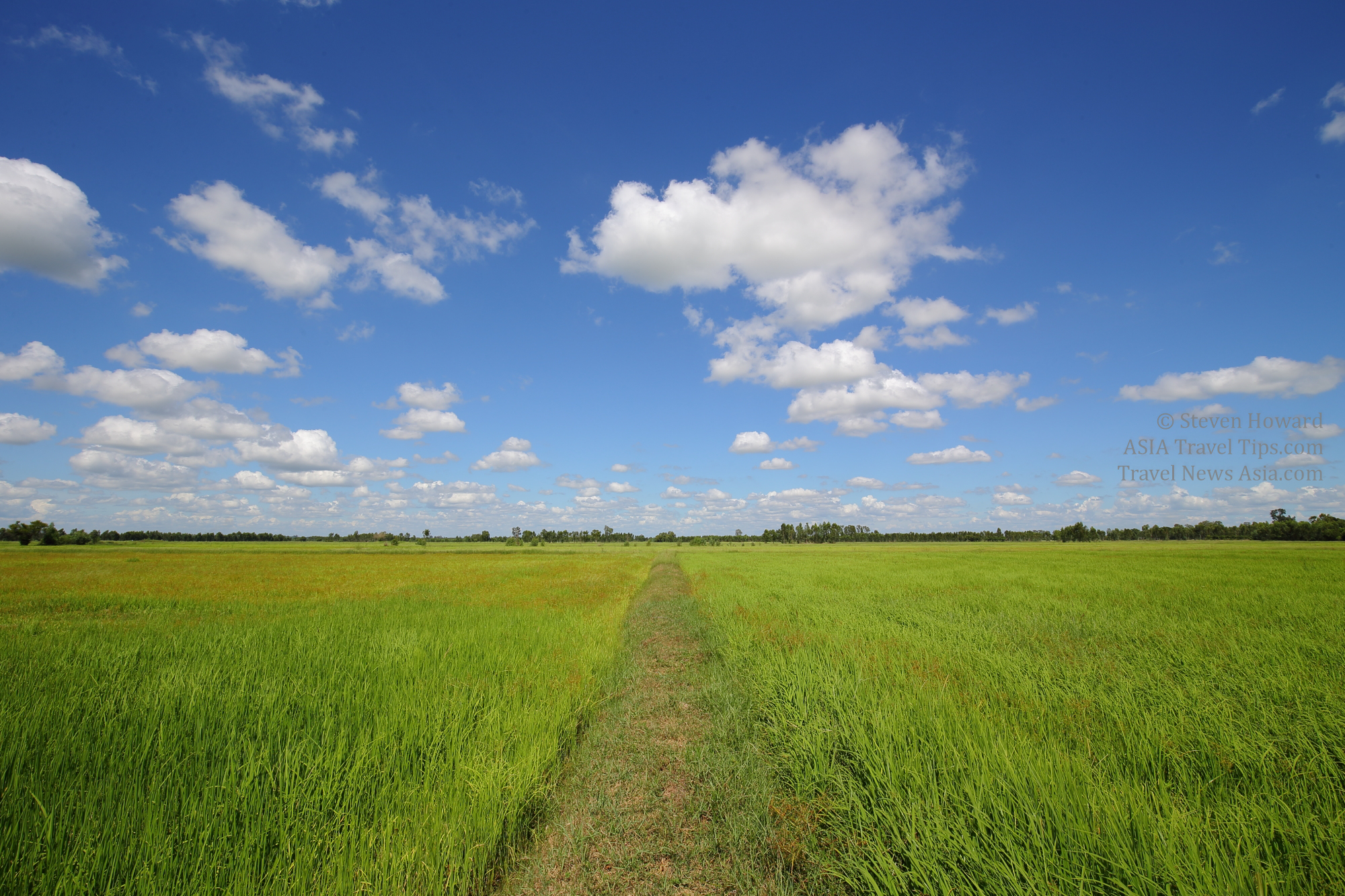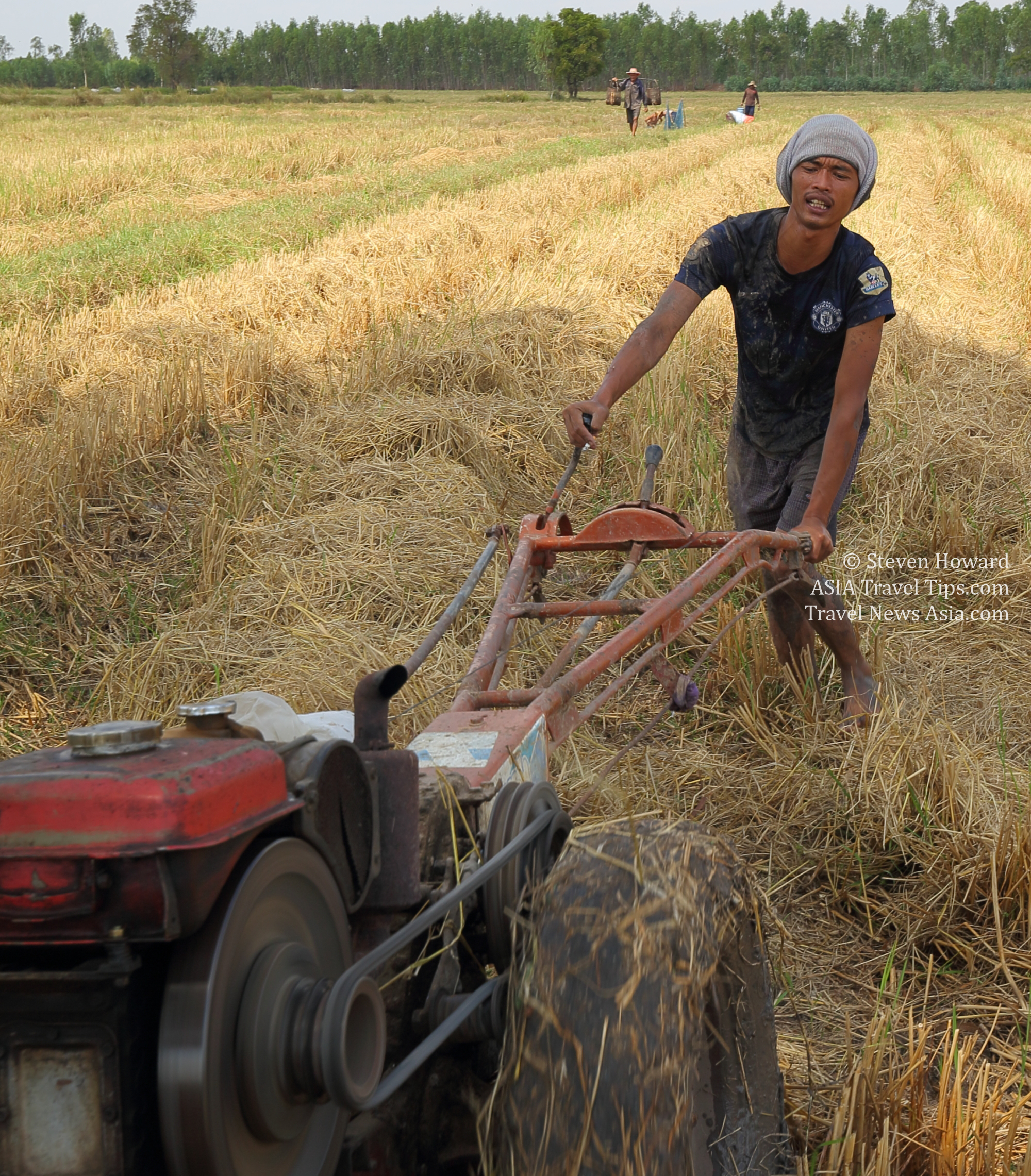|
A campaign to promote Organic Tourism across
Thailand and the Greater Mekong Subregion has taken a major step
forward with the convening of the first multi-sectoral workshop
designed to brainstorm ideas and forge new partnerships to advance
the cause.
The campaign is aimed at motivating hotels,
restaurants, catering companies, supermarkets and other food
outlets to wean farmers away from unhealthy and environmentally
destructive pesticides, herbicides and fertilizers.
After taking
root in Thailand, it is slated for expansion across Myanmar,
Cambodia, Vietnam, Laos and Guangxi and Yunnan provinces of
Southern China.
Over 40 participants including hoteliers, tour
operators, academics, environmentalists, NGO and media
representatives attended the workshop organised by Sampran
Riverside and the Mekong Tourism Coordinating Office (MTCO),
backed by the Tourism Authority of Thailand (TAT), Sustainable
Food Lab Thailand, Asian Development Bank (ADB) and Destination
Mekong.

Held at the The Athenee Hotel Bangkok on 12
December, the workshop
was also designed as a brainstorming session for the first Mekong
Trends Symposium on Organic Tourism to be held in Bangkok
alongside the 4th UNWTO World Forum on Gastronomy Tourism between
30 May - 1 June 2018.
In his opening presentation, TAT Governor
Mr.
Yuthasak Supasorn said Organic Tourism fitted in perfectly
with the TAT�s marketing campaign to promote Gastronomy Tourism.
It is also in accordance with His Majesty the late King Bhumibhol�s �Sufficiency Economy� philosophy and the 17-point
global agenda known as the UN Sustainable Development Goals.
He
noted that the Royal Thai Government is also promoting stronger
links between its two bedrock economic pillars, agriculture and
tourism, as part of its national 2017-2012 development strategy
known as Thailand 4.0.
Mr. Arrut Navaraj,
Managing Director, Sampran Riverside, said, �Organic Tourism is a
social movement based on an inclusive business model and
Sufficiency Economy Philosophy. Led by the private sector, the
movement aims to build a more sustainable food system. It strives
to empower everyone in the organic value chain to become
collective leaders for change. Organic Tourism is far more than
just tourists visiting organic farms. It involves hotels,
restaurants, and supermarkets, buying organic produce from local
farmers and communicating to their customers its importance and
benefits. Farm visits can be considered as additional activities
to help guests better understand the farming experience.�
Mr.
Arrut said the movement in Thailand is being coordinated by
Sustainable Food Lab (Thailand), a social enterprise which assumes
the role as backbone organisation. Funding support is being
extended by the Thai Health Promotion Foundation, the Sookjai
Foundation and the TAT. The intention is to extend the movement to
other countries in the Greater Mekong Subregion.

Ms. Georginia
Nepomuceno, Regional Cooperation Specialist under the
ADB-administered GMS Core Agriculture Support Program (CASP) said,
�Organic Tourism could be a powerful tool for sustainable
development - improving farmer livelihoods, people's health and
the environment.�
She said the plan to expand the Organic
Tourism agenda was formed at the sidelines of the Second GMS
Agriculture Ministers' Meeting (AMM-2) in September 2017 in Siem
Reap. Both the MTCO and Sampran Riverside were speakers at the
AMM-2 policy forum.
�The AMM-2 endorsed the Strategy for
Promoting Safe and Environment-Friendly Agro-based Value Chains in
the GMS and Siem Reap Action Plan 2018-2022. It aims to strengthen
commitment to food security and safety, increase market access for
small producers, and promote cross-sectoral collaboration between
agriculture, tourism, environment, health, among others,� said
Nepomuceno.
Over
the next few months, a number of activities will be rolled out,
starting with the 4th Sookjai Organic Festival at Sampran
Riverside between 15-17 December 2017 and the 1st Organic Tourism
Social Lab between 18-20 January 2018 followed by a second one in
February 2018.
The campaign will also be publicised at various
travel trade events such as the
Mekong Tourism Forum in Nakhon
Phanom, Thailand on 27-29 June and ITB Asia in October 2018.
The MTCO plans to publish a Mekong Trends Snapshot Report on
Organic Tourism, with key insights from the meetings, as well as
case studies. It is projected for release at the UNWTO World Forum
on Gastronomy Tourism.
Mr. Jens Thraenhart, Executive Director,
MTCO, said, �We are excited to introduce the Organic Tourism
concept to the Mekong Subregion with Thailand as the lead country.
Strong tourist growth is coupled with a shift of consumers looking
for clean and healthy food. Thus, the industry has to adopt and
prepare for sustainable living practices. Aligned to the GMS
Tourism Sector Strategy 2016- 2025, Organic Tourism can be an
important social movement in that regard, combining the two most
important economic sectors in the region.�
See also:
Chiang Mai to Host ASEAN Tourism Forum 2018 in January - What Does
TAT Have Planned?
See latest
HD Video
Interviews,
Podcasts
and other
news regarding:
Mekong,
Tourism,
Roi-Et,
Ubon Ratchasima.
|
